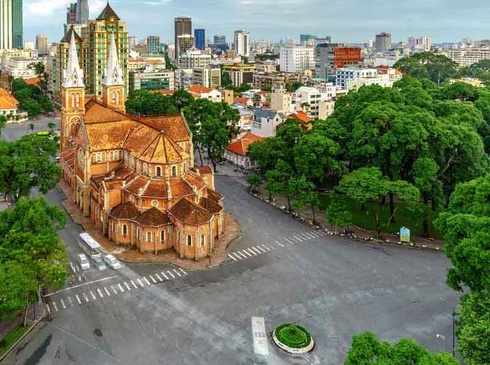Everything You Need to Know About Vietnamese Language
Vietnamese is the official language of Vietnam, and it has become increasingly important in today's globalized world. It is spoken by over 100 million people worldwide, making it one of the most widely spoken languages in the world. Vietnamese has a unique sound and is considered by many to be a challenging but rewarding language to learn. In this article, we will discuss everything you need to know about Vietnamese language – from its history and characteristics to its grammar and vocabulary.
.jpg)
History of Vietnamese Language
Vietnamese has a long and complex history. It was only in the late 19th century when the modern Vietnamese language began to emerge as a result of French colonization. Before then, Vietnamese was written in classical Chinese, and the language was heavily influenced by Chinese culture. However, in the modern era, Vietnamese has developed its own unique identity and has become a bit less influenced by Chinese.
Characteristics of Vietnamese Language
One of the most distinctive features of Vietnamese is its use of tones. Vietnamese has six different tones, and each one is used to signify a different meaning, making it a tonal language. Additionally, the language also has a wide range of vowel sounds and diphthongs, which can make it difficult for beginners to learn. Another characteristic of Vietnamese is its use of diacritical marks to indicate the tone of each word.
Grammar of Vietnamese Language
Vietnamese has a relatively simple grammar structure compared to other languages. The word order is subject-verb-object (SVO), which is the same as English. However, Vietnamese grammar has a lot of particles, which can change the meaning of the sentence. Additionally, Vietnamese has no plurals or articles, and the tense is indicated by context.
.jpg)
Vocabulary of Vietnamese Language
Vietnamese vocabulary is heavily influenced by Chinese culture, which means that many words are borrowed from Chinese. However, the language has also been influenced by French over the years, resulting in many French loanwords as well. Vietnamese vocabulary is phonetic, which means that once you learn the sounds of the alphabet, you can easily sound out new words.
Learning Vietnamese Language
Vietnamese language is a challenging but rewarding language to learn. The best way to learn Vietnamese is to immerse yourself in the language and culture. There are many resources available to help you learn, such as online courses, textbooks, and language exchange programs. Additionally, watching Vietnamese movies and TV shows can help you improve your listening skills while exposing you to the language.







